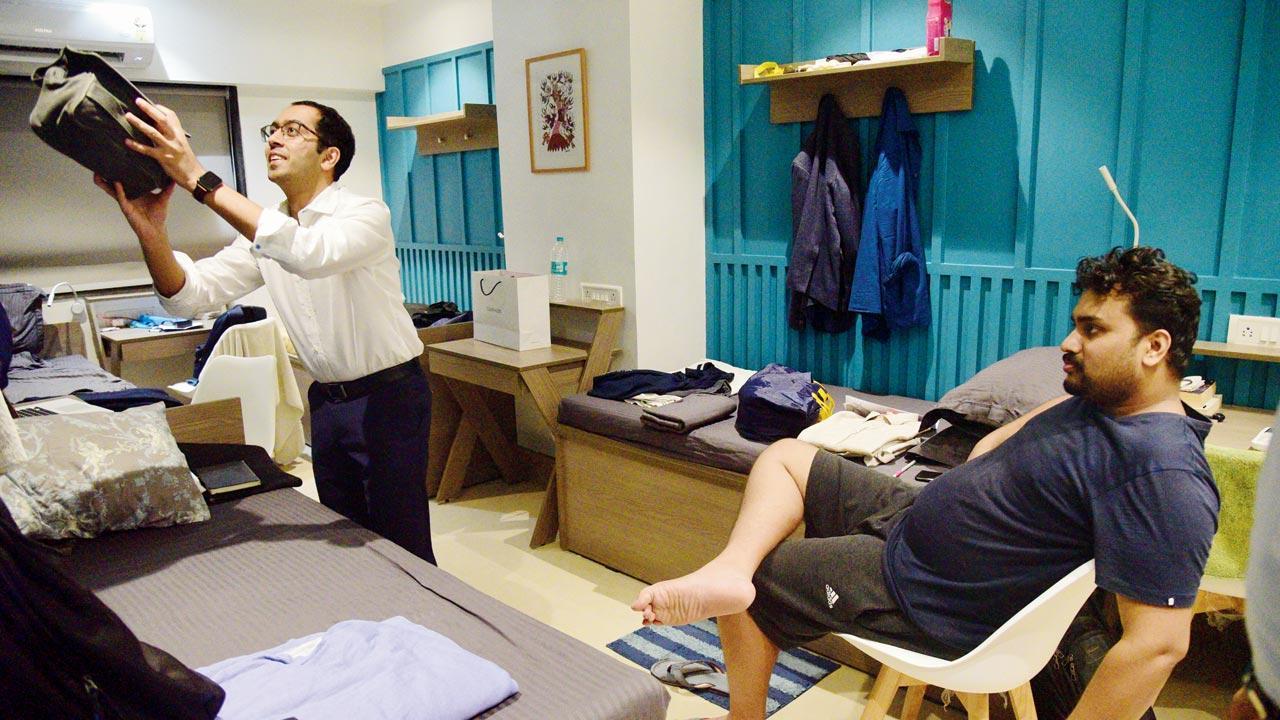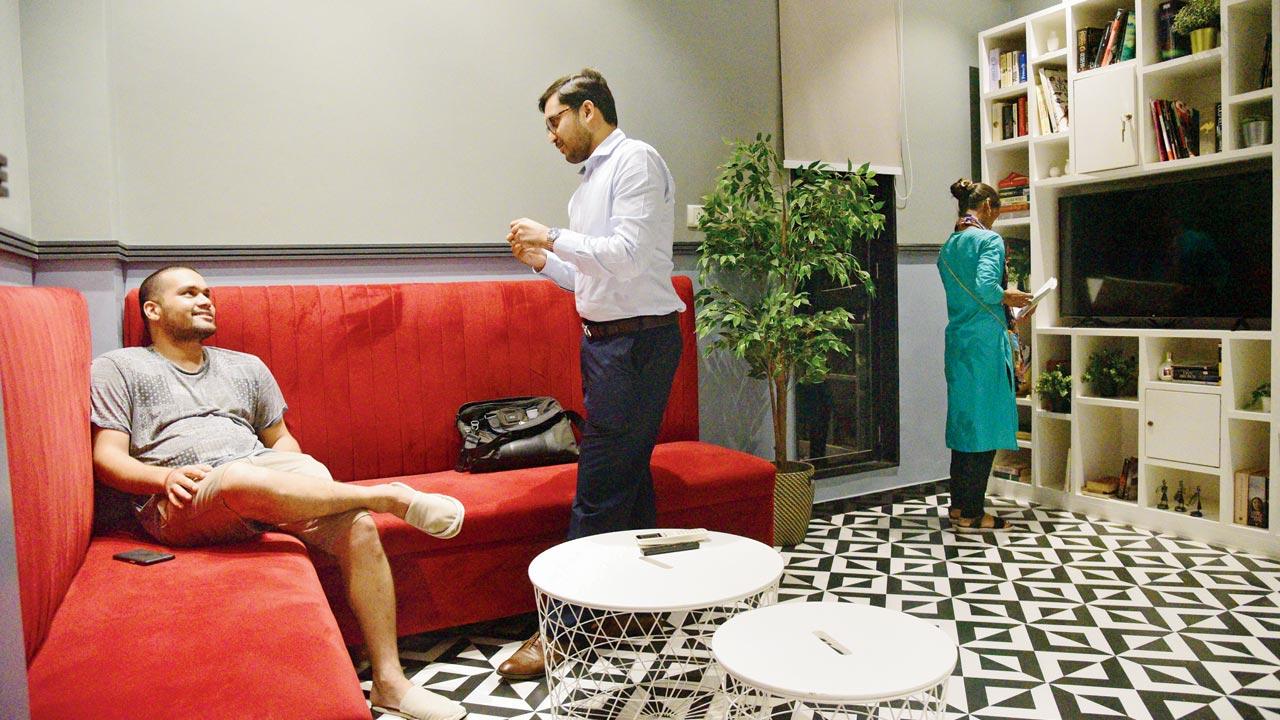Fresh out of the pandemic isolation blues, Mumbaikars are taking a shine to co-living community spaces that allow for networking minus the hassle of a rented home

Every room at Livlit comes with the standard amenities such as a bed, study table, bookshelf, cupboard, linen, laundry and housekeeping. Pics/Pradeep Dhivar
In the heart of the business district of Kala Ghoda, a newly opened ground plus two structure has become the home away from home for college students, and single working professionals alike.
ADVERTISEMENT
Livlit, a co-living boutique complex, which opened its doors in August, is offering modern, luxurious rooms at affordable rentals for people who like to network and want to experience community living.
 Rozel Arora and Namay Kedia
Rozel Arora and Namay Kedia
Co-living is essentially a residential community-based model for people. It has over the last few years found takers in several cities, especially Bengaluru, Hyderabad and Chennai, where many MNCs are currently based. In Mumbai, where paying guest and hostel accommodation are the norm, co-living spaces are only now gaining traction. The pandemic, which saw many struggle with social isolation and loneliness, has also triggered the change.
Namay Kedia, founder of Beta Housing, a platform that helps students and working professionals find ready-to-move in co-living spaces, says, this housing model is best suited for “youngsters coming from Tier II and III cities to help them adjust easily in a new city”.
 The common area at Livlit, which is open for all
The common area at Livlit, which is open for all
Most rooms in co-living facilities have a bed, study table, bookshelf, cupboard, linen, laundry and housekeeping. Some also offer a functional kitchen, washing machines, cafeteria, gym and a swimming pool. Livlit, for instance, has a common lounge and roof-top.
“Everything is made available in one space, so you don’t really have to deal with the hassles of looking for furniture or meeting new people,” says Kedia.
 Mayank Bajaj, founder of Livlit
Mayank Bajaj, founder of Livlit
Co-living spaces are quite flexible. People can come in for a short stay—Livlit allows people to stay for a week—or for as long as two to three years. Rozel Arora, 28, a lawyer, who has been a resident at Livlit for four months says the convenience saw him extend his stay. He initially intended to stay here for a month, but later ended up extending it for another three months. “Marine Drive and the Bombay High Court are just a stone’s throw away. So, in terms of location, it’s very convenient for me,” he says.
Mayank Bajaj, the founder of Livlit, who is also a CA and lawyer by profession, says he decided to open the space, when he learnt of the problems that students and young professionals faced with respect to housing in Mumbai. He also realised that people wanted a place that was closer to their workplace or college. According to a recent survey by Colive, a technology powered network of fully-managed ready-to move in homes in select Indian cities, 43 per cent chose co-living properties due to the location, and only 13 per cent were interested in community engagements.
Bajaj says, “Many youngsters also find it difficult to rent a flat, because landlords often assume they will cause a ruckus.” The one advantage that co-livers have over those put up at student hostels, is that they aren’t restricted to meeting and getting along with a similar group of people. “Here, people from different fields and diverse backgrounds stay together, and that’s beneficial for their growth.” Kedia says a few co-living facilities in the city are now working on getting properties for people from the same line of profession.
Arora has been co-living with a chef, bank manager and two other lawyers. “I have been able to network with them and we [the three lawyers] have also been able to find each other work.” This sense of community is what drives the entire eco-system of a co-living facility, he feels.
Many co-living facilities also offer you the option of choosing your co-residents. At Livlit, however, things work differently. Residents need to fill out a form, which is followed by a chat with Bajaj to understand if they are really up for a co-living experience. Both Kedia and Bajaj say that choosing like-minded people is the biggest challenge. To enhance the community spirit, they sometimes hold movie nights on weekends.
Bajaj says that he is seeing more people opt for co-living in Mumbai. “You don’t have to worry about problems that come with renting a flat, such as finding a house help, doing laundry, paying bills, finding a plumber, making sure the Wi-fi works, etc.” Having minimal rules related to drinking alcohol, smoking and curfews, is another big draw. Kedia adds, “The pandemic has made people think differently. Now, they are ready to spend more money for a co-living space, if comfort and hygiene is guaranteed.”
 Subscribe today by clicking the link and stay updated with the latest news!" Click here!
Subscribe today by clicking the link and stay updated with the latest news!" Click here!







